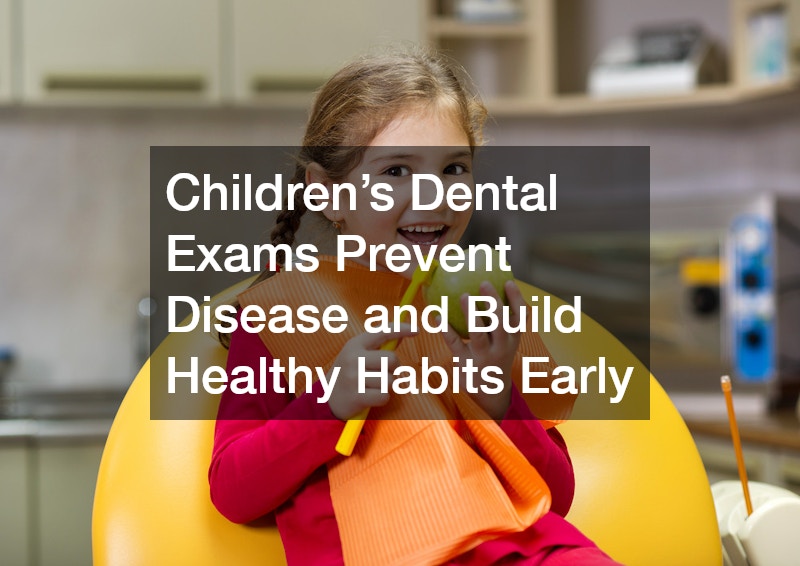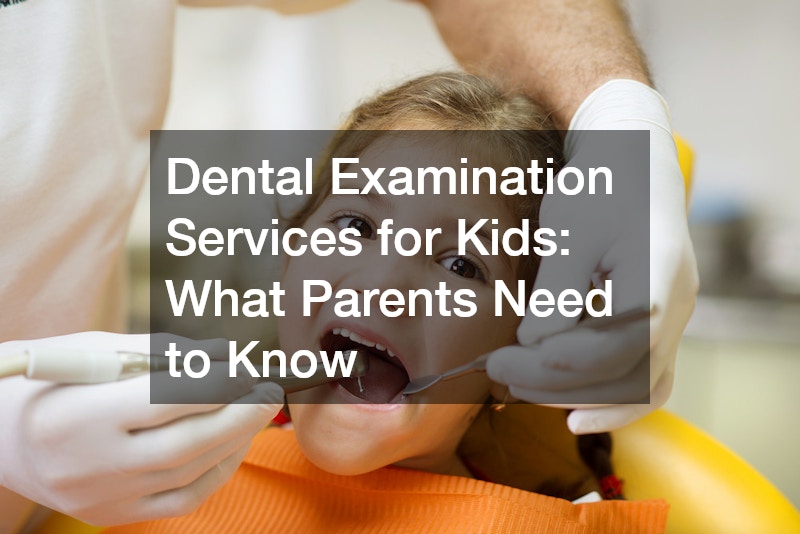Dental health is a critical aspect of overall health, and establishing the foundation of good dental practices early can lead to a lifetime of healthy habits. Parents play a pivotal role in preparing their children for these essential visits to the dentist, helping to ease apprehensions and instill confidence in young patients.
Why Are Regular Dental Exams Important for Children?
Early Detection of Dental Issues
Regular dental check-ups are essential for identifying cavities, tooth decay, and potential orthodontic misalignments early on. Early detection not only helps in preventive care but also reduces the risk of complex dental problems that might require extensive treatment if not addressed in a timely manner.
Some dental conditions, such as malocclusion, can be effectively addressed if detected early, preventing future complications. Dentists can also assess oral hygiene practices during these visits, providing insights to ensure proper dental care at home.
According to the American Academy of Pediatric Dentistry, children should visit the dentist every six months for optimal oral health. These regular exams are crucial in tracking growth developments and adjusting dental care plans as needed.
Building Healthy Dental Habits
Routine dental visits serve as an excellent platform for reinforcing the importance of proper brushing and flossing techniques to children. When children are educated about maintaining oral hygiene, they are more likely to practice these habits consistently.
In addition to mechanical cleaning habits, dietary counseling is also a significant component of building healthy dental habits. Dentists often discuss the impact of sugar and acid-heavy diets on teeth, encouraging balanced nutrition as part of comprehensive oral care.
Through these visits, children learn preventive dental practices that they carry into adulthood, reducing the incidence of dental diseases. The comfort and familiarity developed during regular visits also demystify the dental process, making children more cooperative and less anxious.
What Happens During a Child’s Dental Examination?
Comprehensive Oral Evaluation
During a child’s dental examination, dentists perform a comprehensive oral evaluation that includes examining the teeth for cavities, assessing gum health, and reviewing oral structures for any abnormalities. Evaluations are thorough yet gentle, tailored to minimize discomfort and anxiety.
The dentist also looks for early signs of dental issues, such as plaque accumulation or bite problems that may require orthodontic interventions. X-rays might be taken if necessary to provide a more detailed view of the teeth and jaw not visible to the naked eye.
These assessments help in formulating treatment plans that are specific to the child’s needs, ensuring personalized care. The dentist will discuss findings with parents, offering guidance on how to address any issues detected.
Educational Component
Education is a vital part of a child’s dental examination, where children are informed about oral health in an engaging and understandable manner. Dentists often use models and interactive tools to demonstrate concepts like proper brushing technique and cavity formation.
These educational moments empower children to take ownership of their oral hygiene. By understanding the consequences of neglecting dental care, children are more motivated to adhere to the daily routines necessary for maintaining healthy teeth and gums.
Moreover, parents are encouraged to reinforce these lessons at home, acting as role models and supporting their children in establishing a regular oral care routine. This nurturing environment fosters a positive attitude toward dental visits and care.
How Can Parents Prepare Their Child for a Dental Exam?
Discussing the Dentist Visit
Preparing a child for a dental visit begins with an open conversation where parents explain the purpose and process of the exam in a reassuring manner. Addressing any fears or misconceptions can significantly ease anxiety.
Parents should highlight the positive aspects, such as the chance to learn about how to have strong and shiny teeth, shifting the focus from fear to excitement. Reassurance and positive reinforcement go a long way in preparing a child mentally and emotionally for the dentist’s visit.
Encouraging their child to ask questions during the dental visit can also help boost their confidence and engagement. This open dialogue fosters a better understanding and comfort with dental procedures.
Day-of Preparation Tips
On the day of the appointment, parents should ensure their child is well-rested and has eaten a light meal to prevent hunger-related irritability. Bringing comfort items, like a favorite toy or blanket, can also help soothe nerves.
Parents should arrive early to complete any necessary paperwork without rushing, providing a calm start to the visit. Additionally, having a list of questions can help parents address any concerns with the dentist efficiently.
Throughout the visit, parents can maintain a calm and positive demeanor to model appropriate behavior and reinforce the visit as a routine health check-up. This attitude helps in framing the experience positively, leaving a lasting impression on the child.
Dental examination services tailored for children are not only about disease prevention but are pivotal in nurturing healthy dental habits early on. These visits allow for early intervention, proactive care, and ongoing education that supports sustained oral health.
By prioritizing these visits, parents not only safeguard their child’s dental health but also instill a lifelong appreciation for maintaining oral hygiene. Proactive engagement with dental health from an early age sets the stage for years of healthy, confident smiles.

